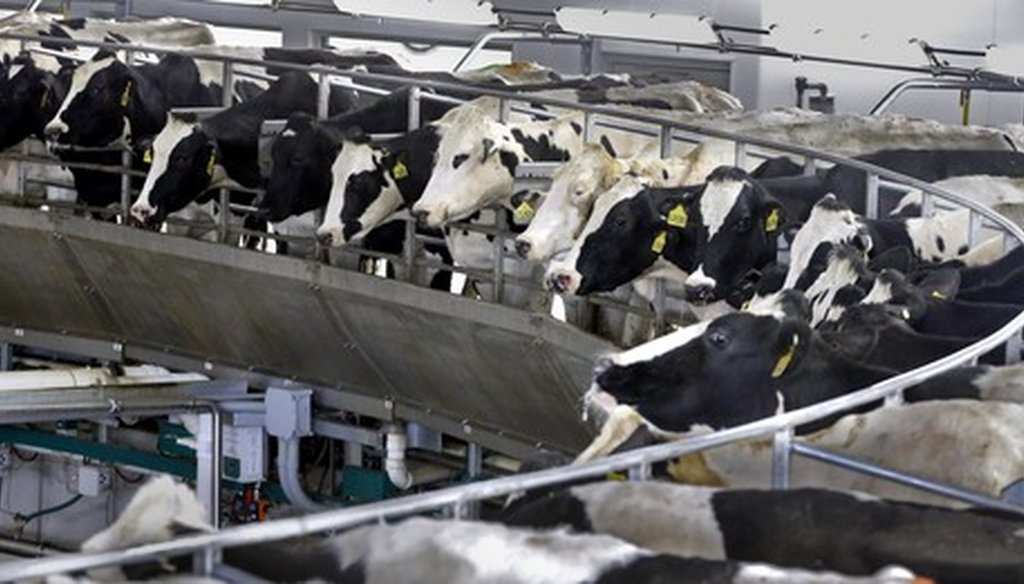

Our only agenda is to publish the truth so you can be an informed participant in democracy.
We need your help.


Dairy cows ride a large rotating automated milking parlor at Kinnard Farms. The Kewaunee County farm milks over 6,000 dairy cows through a CAFO (concentrated animal feeding operations.) (Rick Wood/Milwaukee Journal Sentinel.)
Milwaukee Journal Sentinel, "Tony Evers’ budget beefs up water and energy programs but faces uncertainty with lawmakers," March 4, 2019
Wisconsinwatch.org, "Fecal microbes found in 60 percent of sampled wells, raising concerns about dairy manure, septic waste, June 8, 2017
Wisconsin Public Radio, Walker, Evers on Wisconsin’s Drinking Water Woes, Oct. 19, 2018
Department of Natural Resources, Concentrated Animal Feeding Operations
New York Times, Rural America’s own private Flint: Polluted Water too Dangerous to Drink, Nov. 3, 2018
Door County Pulse, Seven Sickened by Tainted Wells, Nov. 12, 2014
WisPolitics, How Evers’ budget tries to ‘bring back science’ to DNR, March 6, 2019
WUWM89.7, Kewaunee County residents fed up living contaminated wells, April 8, 2019
E-mail correspondence with Logan Vidal, spokesman for Rep. Jimmy Anderson
E-mail correspondence with Sarah Hoye, communications director for the Wisconsin Department of Natural Resources
In a world of wild talk and fake news, help us stand up for the facts.
